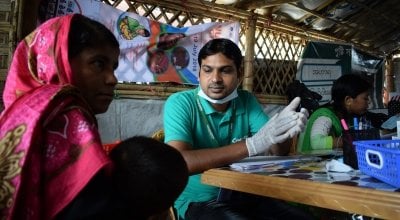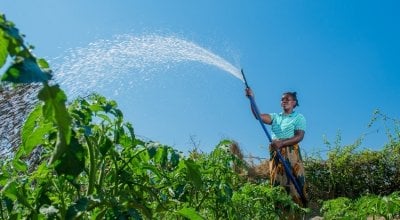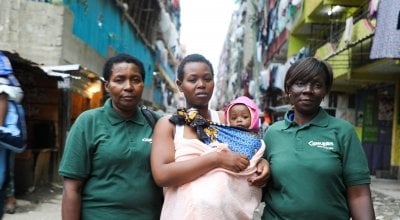
Read our 2024 annual report

Knowledge Hub
In Somaliland, Concern continues to see the positive impact of our Social Transfers programme on the lives of vulnerable people.
Supported by the European Union and distributed in collaboration with the Ministry of Employment, Social Affairs and Family (MESAF) and the Ministry of Health Development (MoHD), this 39-month social transfers programme supports health, nutrition and livelihoods in Somaliland.
There are two main components:
- Cash-based social transfers to support targeted households and reduce vulnerability to the impact of shocks and disasters
- Support to build systems at both regional and district levels for the implementation of a government-led social protection system.
Key to Concern’s work in the area is the health and nutrition component, which offers regular, predictable and consistent cash-based social transfers which are financed by the European Union for 24 months.
Deeqa's story
Deeqa Carab Yusuf is a 48-year-old mother of nine – four boys and five girls - from Qarxabashi Village in the southern part of Borama District, and has lived in the region for five years.
Deeqa describes how, during her pregnancy with her ninth child, she was referred to the social transfers programme by Shifo Maternal and Child Health Clinic (MCH), and soon began attending her antenatal consultations at the MCH.
Social transfers made all the difference to Deeqa, in comparison with her previous pregnancies.
“You can’t predict when the labour pain will start so it’s crucial to have some cash to reach the nearest health facility on time,” she tells Concern.
“For my previous eight children, I had difficulties reaching the nearest health facility because renting Bajaj [transport] is expensive, and we had no money to pay for it.
“This time was different.
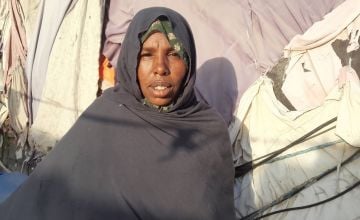
“I was registered under the programme and I received the first cash of $US20 in October 2021 and [I have] been informed the programme will continue to send me cash for 24 months. I saved some of the cash I received and I was able to rent a Bajaj to Shifo MCH and safely deliver my 9th baby.”
Faadumo's story
Faadumo Maxamuud Caamir also lives in Borama District, in Nafaqo village, and is a beneficiary of a Social Transfers Programme that looks to alleviate the devastating economic effects of COVID-19 for vulnerable people.
Faadumo is 70-years-old and has been living alone for almost ten years. She built her ‘Aqal’ – which is a traditional Somali hut – herself but does not own the land on which it stands and could be forced to move at any time.
“My life was difficult and I only waited for someone to bring me food to cook,” Faadumo explains.
“I’ve two daughters and both are living in poor living conditions with large number of their own children.”
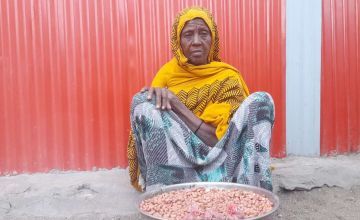
Monthly cash instalments of $20 have helped Faadumo to start her own business, however, and as a result live more independently.
She purchases peanuts by the kilo and packages them into smaller amounts to sell on the corner of her street.
“As I become older, I feel pain in my knees,” Faadumo says.
“So, when Concern started to send me the monthly cash assistance of $US20, I decided to purchase some foods, and I thought of selling peanuts to make the cash go further.
“I purchased 2-3 kilos of peanuts and then I spent weeks selling them. It is a job for me and I make a small profit where I receive 10,000 -15,000 SL shilling per kilo. Thanks to Concern, MESAF and the European Union for supporting me.”



